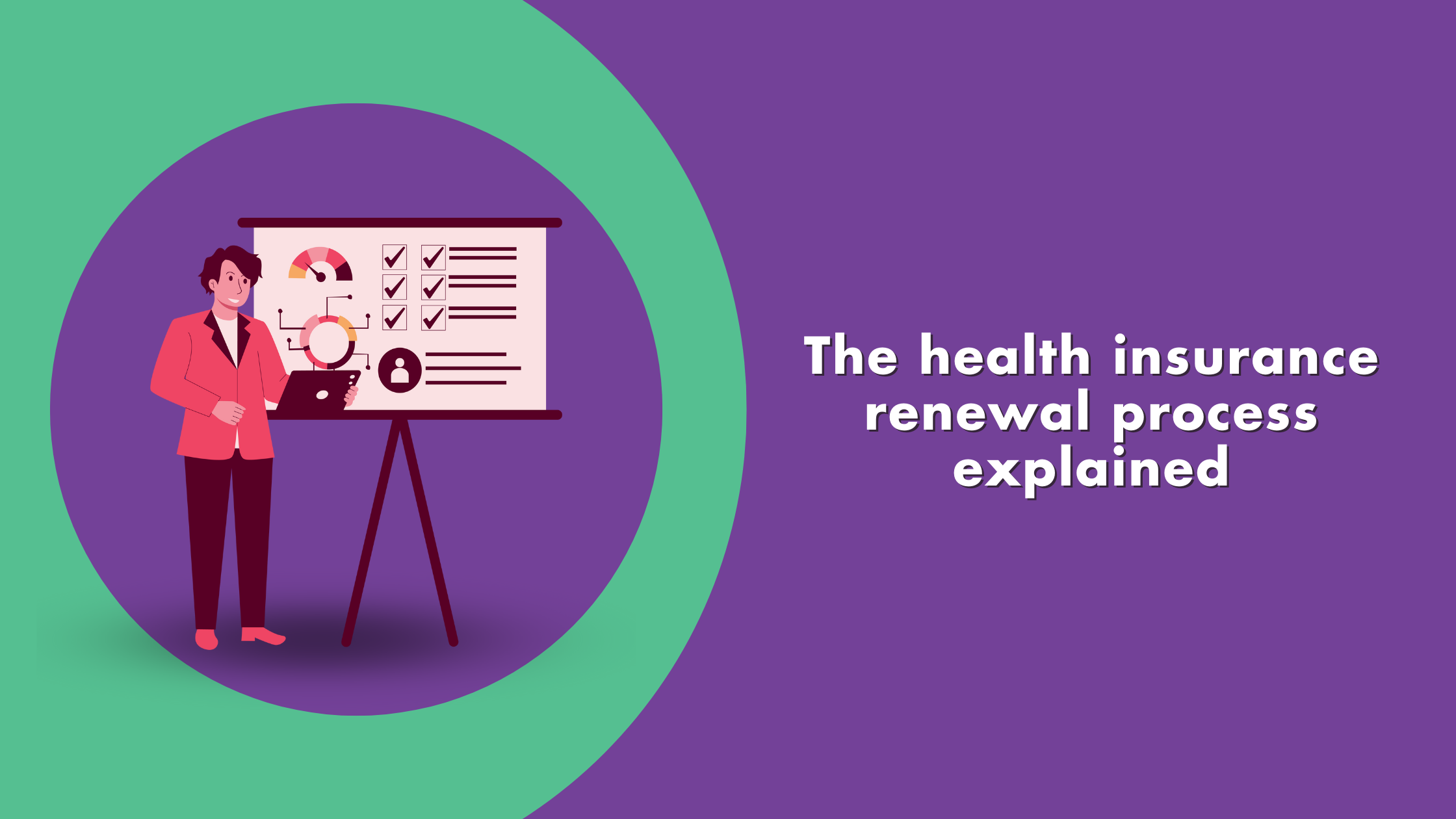The world of health insurance can be overwhelming to a newcomer. Even if you’ve been here before, the industry jargon can be hard to wrap your head around.
So, if all this talk of moratorium underwriting and policy excess puts your head in a spin, this health insurance jargon-buster should help clear things up.
Need advice on setting up a Group Health Insurance scheme for your workforce? Get in touch with our friendly team of brokers on 01273 222805 or email at hello@hoorayinsurance.co.uk.
What is Group Health Insurance?
Let’s start at the beginning…
Group Health Insurance is a type of private medical insurance purchased by businesses to cover multiple staff members. Like a typical health insurance policy, it provides access to a wide range of medical treatments and services in return for paying a monthly or annual ‘premium’ (more on that later).
Group Health plans will typically offer a choice of consultant, hospital network, date of treatment, and more.
What is included for SMEs and smaller businesses?
The more services included a plan, the higher the cost will be. But most providers will offer the following services in a Group Health plan:
- In-patient treatment / Out-patient treatment
- Physiotherapy, osteopathy, chiropractic treatment
- Mental health services
- Specialist consultants
- Diagnostic tests
- Free prescriptions
- 24/7 GP
- Digital health apps
- Further mental health cover
- Range of private hospitals
- Dental / Optical
- Second medical opinion
Extra reading: Yes! Small teams can access Group Health Insurance…
In-patient, day-patient and out-patient treatment
This is the bread and butter health insurance jargon you’ll come across when doing your research.
In-patient treatment: Where the patient is admitted to hospital and occupies a bed overnight.
Out-patient treatment: Where the patient is admitted to hospital but does not occupy a bed e.g., scans and consultations.
Day-patient treatment: Where the patient is admitted to hospital and occupies a bed, but does not stay overnight.
Pre-existing conditions
Pre-existing conditions are health issues existing prior to taking out a health insurance policy. So, if an employee already has a heart condition or a broken leg, for example, they won’t be able to get treatment on their health insurance policy.
Health insurance is typically designed for new and unexpected medical conditions, so insurers need to know of anything pre-existing when setting up a scheme. This includes symptoms, medications, treatments, and any diagnostic tests for diseases, illnesses, or injuries.
Premiums and renewals
Premiums are the amount of money paid to a health insurance provider to keep policies active. These are typically paid monthly, quarterly or annually. The total amount depends on these factors:
- Age of employees
- Number of members covered
- Nature of business and employee duties
- Location
- Level of cover required
- Specific insurer you choose
Once a company scheme is in place, the monthly rates will be fixed for 12 months, until the insurer’s renewal terms kick in 6-8 weeks before the annual renewal date. Before this point, it’s a good idea to review your scheme and see if it’s providing value for money – this is where a broker like Hooray can help.
Need to review or set-up a health insurance scheme for your employees? Get free advice and price comparisons from our friendly award-winning experts by contacting hello@hoorayinsurance.co.uk or call 01274 222805.
Acute and Chronic conditions
Chronic conditions are any long-term health condition, disease, or injury that requires ongoing monitoring and/or medication. It is a persistent medical condition unlikely to be resolved, so many insurers will exclude it from the cover. Things like asthma and diabetes are typical examples.
Acute conditions are any unexpected health conditions, diseases, or injuries that can be cured. Things like heart attacks, broken bones and hernias are typical examples. These are health conditions which you’ll usually find included in a plan.
Medical underwriting
Medical underwriting:
This refers to when an insurer requires health information to evaluate applications for private health insurance. Insurers uses these medical background checks to decide whether to accept an application and calculate the premium rates and cover limits accordingly.
Moratorium underwriting:
If the policy mentions moratorium underwriting, it means staff won’t need to fill out a health questionnaire or declare their full medical history upfront. This makes setting up the policy easier. BUT, if staff do make a claim, insurers will need to look into their medical history to see whether it’s a new or pre-existing condition. This usually means going back five years into the employee’s medical history.
Here’s the good bit, though. If an employee has a two-year ‘trouble-free’ period for a pre-existing condition, then you effective have the slate wiped clean and the condition can be treated on the policy from that point forward.
For language lovers: The word ‘moratorium’ is a noun which refers to the temporary prohibition of an activity.
Full medical underwriting:
When a policy stipulates full medical underwriting, it means they want a full breakdown of an employee’s medical history so they can then produce a list of exclusions based on said medical history. This means health questionnaires and GP reports are required at the start of an application. From the get-go, staff and employers know exactly what’s covered and what isn’t, providing a clear understanding of the policy.
Medical history disregarded:
Medical history disregarded means just that – there is no exclusions based on past medical history of pre-existing conditions. All pre-existing and new conditions can be covered. The only downside is that it comes with significantly increased premiums.
Continued personal medical exclusions (CPME):
Designed for businesses with fully underwritten health insurance policies (i.e. those who have gone to the effort of disclosing full medical histories) who want to change insurer with the same underwriting terms. Instead of starting over again, they can roll over previous medical conditions and treatments from the beginning of the new policy. Even better: any ailment treated under the old policy won’t be treated by the new insurer as a pre-existing condition!
Continued / switch moratorium:
This option is available for companies switching health insurance originally underwritten on moratorium terms. Businesses carry over existing medical underwriting to a new insurer covering the same conditions as before.
For more details on medical underwriting, check out our other jargon-free guide here: Group Health insurance underwriting.
Claims
Providers will require different methods for submitting claims, but it’s a relatively simple process. Claims can be used for even the most mundane of services, such as an eye test to then purchase new lenses and glasses.
Once you have undergone treatment, grab the receipt from that service, upload it to the insurer, who will then process the receipt and whatever else you have had done. And voila! Claims can be received back on the money spent.
Be sure to inform the insurer within 24 hours of treatment!
A good insurance broker like Hooray can help if there are any claims disputes.
Excess
Excess is the pre-agreed amount the policy holder pays upfront when making a claim. Businesses can choose between different levels of excess when buying a policy or during renewal. Essentially, the higher the excess, the cheaper the premium will be.
Break through the health insurance jargon with Hooray!
Independent health insurance and employee benefits brokers, like Hooray, specialise in all things employee benefits and health insurance, taking the time to listen to a client’s specific needs and answer all queries. A good broker studies policies from across the market to see who has the best product for the needs of a specific business. We can find you the best deals for your employees, business, and budget.
The Hooray Health & Protection team provides expert advice throughout the entire employee benefits process, helping you to choose and set up your health insurance policy. Oh, and keeping things as jargon-free as possible!
Contact us at hello@hoorayinsurance.co.uk or call 01274 222805 for FREE no-obligation advice and support.
Author

Author: Eleanor Chilvers








![_HPA24 Advice Firm of the Year [YELLOW] _HPA24 Advice Firm of the Year [YELLOW]](https://hoorayinsurance.co.uk/wp-content/uploads/elementor/thumbs/HPA24-Advice-Firm-of-the-Year-YELLOW-qwfw5zs3ef19fjq6cnwf697rj9gwqbf8o6443qptg0.png)
![_HPA24 Best Small Health Insurance Advice Firm [YELLOW] _HPA24 Best Small Health Insurance Advice Firm [YELLOW]](https://hoorayinsurance.co.uk/wp-content/uploads/elementor/thumbs/HPA24-Best-Small-Health-Insurance-Advice-Firm-YELLOW-qwfw5yu97kzz3xrji5hslrgaxvljimbic1gmmgr7m8.png)
![_HPA24 Best Sales & Retention Advice Team [YELLOW] _HPA24 Best Sales & Retention Advice Team [YELLOW]](https://hoorayinsurance.co.uk/wp-content/uploads/elementor/thumbs/HPA24-Best-Sales-Retention-Advice-Team-YELLOW-qwfw5yu97kzz3xrji5hslrgaxvljimbic1gmmgr7m8.png)
![_HPA24 Best Small Protection Advice Firm [YELLOW] _HPA24 Best Small Protection Advice Firm [YELLOW]](https://hoorayinsurance.co.uk/wp-content/uploads/elementor/thumbs/HPA24-Best-Small-Protection-Advice-Firm-YELLOW-qwfw5zs3ef19fjq6cnwf697rj9gwqbf8o6443qptg0.png)